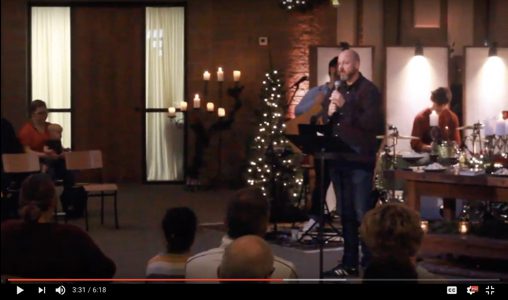We live in a time of massive disorientation: the loss of unifying narratives, loss of faith in institutions, a renegotiation around truth (what is true and who decides), a clash between the religious nationalism of Islam, Christianity, and Judaism, and a host of new technologies that are transforming virtually all of our relationships in a short time. We’re going on decades of this kind of disorientation building up steam within our culture.
Most people react to the disorientation in one of two ways: Cynicism or Sentimentality.
The cynic looks at the world and says love is impossible. Self-interest has overpowered virtue. Selfishness is really what motivates people. Oscar Wilde said: “A cynic is a man who knows the price of everything, and the value of nothing.” The cynic can be terribly pessimistic, skeptical, and they make relationships painful.
The sentimentalist looks at the world and says love is everywhere. Even though love is obviously not everywhere. They attempt to ignore the dark side of everything and live on happy feelings. Oscar Wilde said: “A sentimentalist is simply one who wants to have the luxury of an emotion without paying for it.” Sentimentalism is a form of escapism… ignore the negative and life will work itself out. They make relationships shallow and thin.
Of course, the cynics and sentimentalists eventually end up in pretty much the same place: they both disengage from responsibility for the future. The cynic says, “everything’s terrible why bother to work for change?” The sentimentalist: says “Everything’s fine, so there’s no need to change.” Both approaches abandon the human call to co-create and shape our common life toward the kingdom of God.
During the season of Advent we try to open up a space between cynicism and sentimentality, and find a space for hope. Hope combines the best of cynicism (the ability to tell the truth about the world), and the best of sentimentality (this belief that the world is essentially good), and transforms them into action—a new way of being in the world.
Hope is able to say: although things are broken, they won’t always be.
That’s hope: although things are broken, they won’t always be, so let’s get on with life and stick together. Jesus taught us to pray, “thy kingdom come… on earth as it is in heaven,” and heaven hopes. We are meant to be conduits of hope. Hopeful people make relationships deep, rich, wholesome, and regenerative.
There’s an old Native American proverb I love:
The old man confessed to his grandson, “There are two wolves inside of me: one is good, and generous, and filled with hope, the other is angry, cynical, and despairing. They are constantly fighting within me.”
“Which wolf wins,” the wide-eyed grandson asked?
“Whichever wolf I feed.”
My wish for you this Advent is that you will take the days and weeks between now and Christmas to intentionally open up space within your life for hope to grow and flourish. That you will feed the hope-wolf and reject cynicism and sentimentality.














